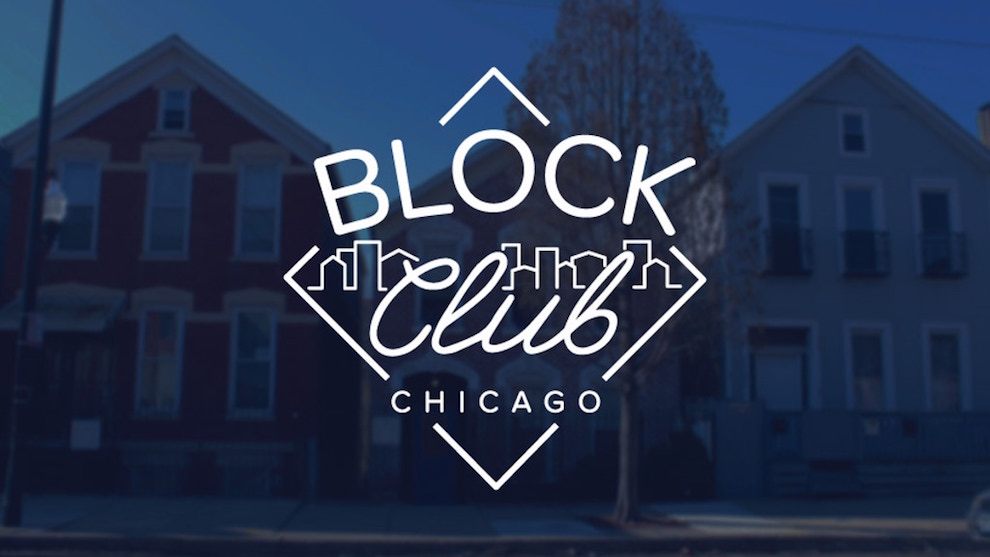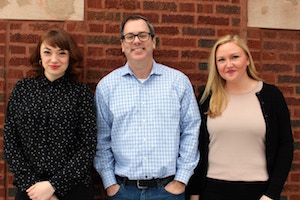
Three months after local news specialist DNAinfo’s website was abruptly pulled offline, a team of Chicago journalists have rebirthed its spirit as Block Club Chicago — boosted by blockchain and supported by subscriptions.
Block Club Chicago’s Kickstarter launched at 7 a.m. CT on Tuesday and within 24 hours had already blown past its $25,000 goal. As of Thursday morning, it had raised $116,047 from nearly 2,000 backers. That money will help jumpstart the organization, which officially launches in April, but the cash and cryptocurrency coming from the journalism-focused marketplace Civil is giving Block Club (the name is no relation to the blockchain, but rather to a Chicago community tradition) its legs — no billionaire benefactors required this time.
“We wanted to focus on neighborhoods and we wanted to have a membership model,” said Jen Sabella, Block Club’s director of strategy and the former deputy editor and social media director of DNAinfo Chicago. “We didn’t get to do it our way at DNA, at least on the business side. So we said, ‘Let’s just do it our way now.'”
“Our strategy since day one toward our goal of building a marketplace for sustainable journalism is to introduce a guiding methodology…focused on local, investigative, and policy” reporting, said Matt Coolidge, co-founder of Civil. “To tap into arguably the most respected network of local journalists in America’s third largest city feels like a no-brainer in that sense.”
Block Club’s roots come from the ashes of DNAinfo, a news organization comprised of reporters based in the neighborhoods of Chicago and New York founded in 2009 by Joe Ricketts, who made his fortune through TD Ameritrade. DNAinfo’s bread and butter was embedding reporters in specific neighborhoods or groups of neighborhoods, building trust and telling hyperlocal stories that larger news outlets in the city might overlook — but ones that matter to the neighborhood readers. Sabella said she pitched a membership-driven model to Ricketts in 2014 to no avail; DNAinfo relied on online advertising. When Ricketts unceremoniously shut down the operation in November, he cited a tough-to-crack business model as the cause (some noted that it was also a week after the New York side had voted to unionize). “DNAinfo is, at the end of the day, a business, and businesses need to be economically successful if they are to endure,” he wrote in the message that initially replaced the two websites.But DNAInfo had never tried asking readers to pay.
 “At DNA, people would call us and say, ‘We don’t want you to go away, what can we do to give you money?’ And we were like, ‘Um, buy an ad?’ That’s the only option people had,” Sabella said. She, former DNAinfo managing editor Shamus Toomey, and former DNAinfo senior editor Stephanie Lulay — now Block Club’s editor-in-chief and managing editor, respectively — brainstormed other options to bring DNAinfo’s local news mission back to life and were approached by advocates from venture capitalists to nonprofits to Civil.
“At DNA, people would call us and say, ‘We don’t want you to go away, what can we do to give you money?’ And we were like, ‘Um, buy an ad?’ That’s the only option people had,” Sabella said. She, former DNAinfo managing editor Shamus Toomey, and former DNAinfo senior editor Stephanie Lulay — now Block Club’s editor-in-chief and managing editor, respectively — brainstormed other options to bring DNAinfo’s local news mission back to life and were approached by advocates from venture capitalists to nonprofits to Civil.
“We did some math after one of these venture capitalist guys came to us and said if you had three percent of your audience subscribe, you guys would have been completely profitable. We looked at that number and we were just like, ‘Holy shit,'” Sabella explained. “We were angry because we never tried it at DNA, but also we knew we could do this.”
Block Club Chicago is structured as a nonprofit newsroom drawing on reader subscriptions for sustainability (they’re eyeing $5 a month — “less than that last cocktail you really didn’t need at happy hour,” their Kickstarter notes) and Civil’s blockchain for posterity. They’re also considering philanthropic funding for special projects and events for subscriber engagement and community building. The blockchain not only allows for subscribers to contribute in whichever cryptocurrency they desire, but also gives the newsroom a speculative stake in the currency that has a chance of increasing in value, as my colleague Ricardo Bilton explained in our previous coverage:Built on top of blockchain (the same technology that underpins bitcoin), Civil promises to use the technology to build decentralized marketplaces for readers and journalists to work together to fund coverage of topics that interest them, or for those in the public interest. Readers will support reporters using “CVL” tokens, Civil’s cryptocurrency, giving them a speculative stake in the currency that will — hopefully — increase in value as more people buy in over time. This, Civil hopes, will encourage more people to invest in the marketplaces, creating a self-sustaining system that will help fund more reporting.
Bonus points for the battle-wounded DNAinfo reporters who “started sobbing” when Ricketts took down the website and their work, Sabella said: Civil helps the news organizations store their work in the blockchain technology, making it impenetrable to deletion.
“It’s basically a Wayback Machine, but just for [our publication],” Maria Bustillos, one of the journalists who partnered with Civil last year, told Ricardo. “That thing is not able to be shut off unless someone shuts off the Internet itself. That alone makes this worth it for me.”
Bustillos leads one of what Coolidge and Civil CEO Matthew Iles hope will be 15 newsrooms, which now includes Block Club Chicago, on their platform at the token’s launch in April, supporting as many as 100 to 150 journalists. Civil has a total pool of $1 million issued in combined grants of U.S. dollars and commitments to CVL tokens, and each newsroom receives a portion. (They’re still accepting applications for partner newsrooms.) “We’re going to be as good as the quality of journalists we can attract and sustain,” Coolidge said.
With the initial funding from Civil, Block Club Chicago has hired five reporters — four from DNAinfo Chicago and one other local reporter with a strong following in Chicago’s South Side. Four will be assigned to specific neighborhood groupings like DNAinfo’s model, with one special projects and multimedia reporter. When they were informed of the blockchain protection of their work, “their faces lit up,” Sabella said. All the past work from the DNAinfo reporters they hire will be shared on Block Club’s website as well, since the reporters got the rights to their own content as part of the union agreement before its demise. Plus, Civil head of newsroom strategy Nicole Bode worked at DNAinfo as an editor until July 2017, which helped to assuage concerns from the still-smarting reporters.
Explaining blockchain to your reporters is one thing, though. Explaining it to your not-necessarily-tech-savvy readers of local news is another.
“At first [when hearing Civil’s pitch], I was like ‘Whaaat, crypto? I don’t know about this,'” Sabella said. “I remember when we launched DNA in Chicago [in 2012] and people were like, ‘You don’t have a print product?’ We’re not San Francisco or New York and I don’t know how many people are up on the blockchain stuff. But it’s actually a surprising amount of people who have been excited about it.”
“There will be several ways for people to support us, including credit card payments and old-fashioned donations to back our cause…. We’ll work with Civil to best explain how people can engage with us in that marketplace,” Toomey, the editor-in-chief, wrote in an email. “But the bottom line is, for our readers, the site will function much like existing platforms people are already familiar with. We’ll reach them via email newsletters, social media and our website.”
The blockchain aspect doesn’t appear to be scaring off too many former DNAinfo fans. The extra fundraising is “absolutely at the discretion of the newsroom,” Iles said. “It won’t be necessary to do something through Kickstarter or an external funding apparatus. We think Civil will be the hub for all that kind of activity” once the platform launches this spring.
But the crowdfunding support definitely doesn’t hurt.
“The support from our audience has been incredible and we are very grateful to them. But in order to keep us operational for more than a year while we rebuild our audience and subscription base, Civil’s support is invaluable,” Sabella said.
“The fact that [the Kickstarter supporters] probably have no idea what blockchain is, is such a great thing for us,” Coolidge said. “We’ve built our product in a very deliberate manner where you absolutely don’t have to have any working knowledge of blockchain if you just want to go in there to access good journalism…but it’s also a great way to begin that conversation” about blockchain.
“The success that we’re seeing with Block Club Chicago, just in its first few hours, has made us very confident about where the model can go beyond just that city,” Iles said.